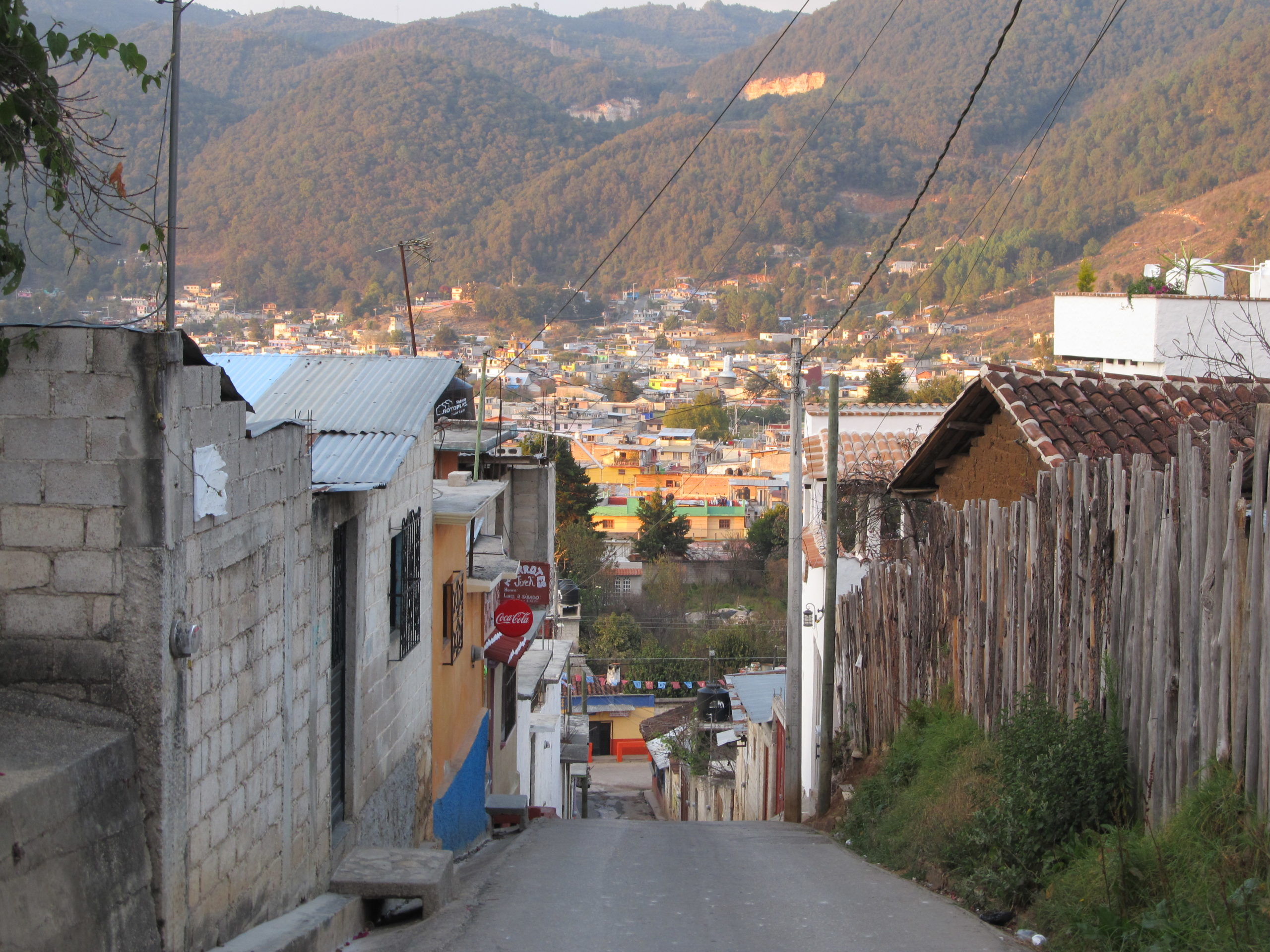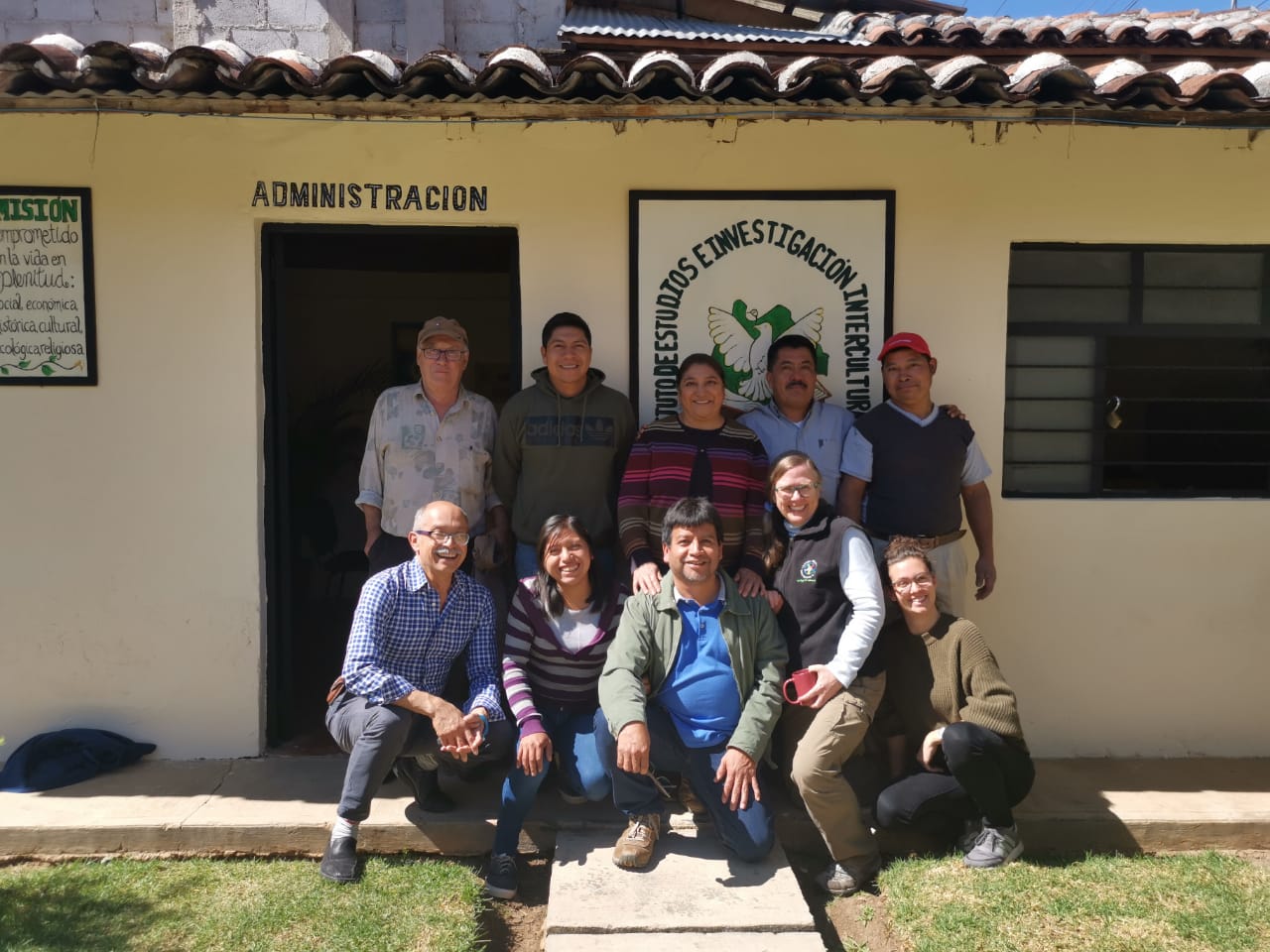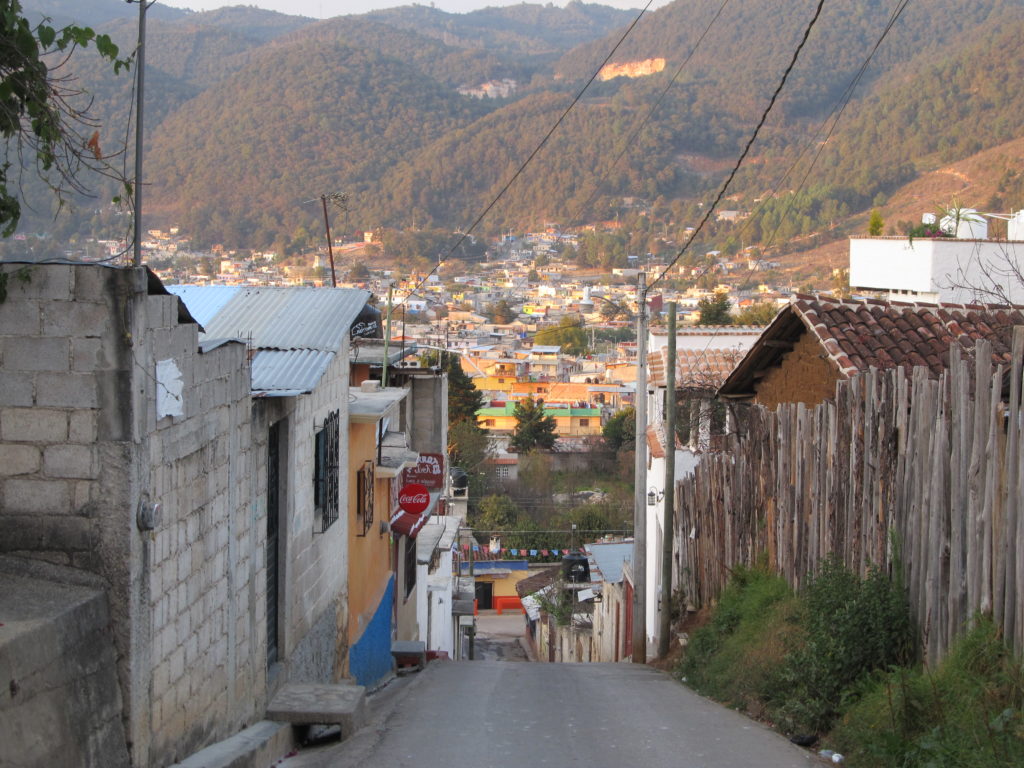The sounds of San Cristóbal de las Casas
As I look at different posts on social media, many people report a drastic reduction of activity on the streets of their cities and a strange quiet blanketing the areas where they live as a result of the stay at home directives in their countries. The opposite seems to be true in San Cristóbal de las Casas, the city where I live in Chiapas, Southern Mexico.
 During this worldwide pandemic, the noises from my street (which is also the street where the Institute for Intercultural Research and Study is located) tell the story of “how we are doing” with greater accuracy to what people are really experiencing than the numbers. The government publishes a daily account of infections, recoveries and deaths on an official website with the clarification that these are estimates, and that in reality, the numbers are probably much higher.
During this worldwide pandemic, the noises from my street (which is also the street where the Institute for Intercultural Research and Study is located) tell the story of “how we are doing” with greater accuracy to what people are really experiencing than the numbers. The government publishes a daily account of infections, recoveries and deaths on an official website with the clarification that these are estimates, and that in reality, the numbers are probably much higher.
- 7:00 am – A clanging starts in the distance coming closer at a walking pace. A man walks ahead of the trash truck by about a half hour letting my neighborhood know that there will be a pick up today. The system is to avoid people leaving their garbage out on the street where the dogs tear apart the bags. We are each responsible for delivering our garbage directly to the truck, so about 20 of us gather on the corner. The two workers loading the truck and I are the only ones wearing masks.
- 7:30 am – Roosters crow. A wide variety of birds sing.
- 7:40 am – Dragging chains and a loudspeaker announce: “Gas, gas, Gascom sells the best gas.” The sounds stops down the street as the truck unloads an LP gas tank at a neighbor’s house.
- 8:30 am – “I am singing in the rain, just singing in the rain. San Cristobal water, the best water in the city. Take care of your family and buy your bottles of water directly from this truck,” says a woman’s sing-songy voice coming from three wheel delivery motorcycle.
- 9:45 am – “During the Corona virus pandemic stay indoors and wash your hands. If you suspect you are someone else is sick call this number,” a man’s confident voice explains. The same message is repeated in Tzotzil, the language of the original Mayan people who still make up a large portion of the population of this city.
- 10:15 am – Dogs barking. The barking continues at intervals throughout the day.
- 10:00 am – “Lady, Lady,” the second word of the repetitive recording emphasized, “don’t trust any other water. Only Nectar water is clean and will keep your family healthy.” The passing of a second water truck tells me that the bottled water companies are battling each other for costumers. 3 or 4 different water and gas companies go by my house every day claiming theirs is the best! I have made friends with one particular Nectar water delivery man after he chastised me for buying water from a different company and discovering the plastic bottle had a leak. He assures me he would sell me clean water and good bottles. Today when he delivers the water, he is wearing a mask for the first time, but he still carries the water into my kitchen.
-
 11:00 am – The pigs start squealing and screaming as they are unloaded. My neighborhood, Cuxtitali, is where the pigs have been slaughtered on their way from the farms to the local meat market since the Spaniards established the city. That tradition continues even in the pandemic, though I notice that there seem to be fewer days in a week where the animals are unloaded from the pickup trucks.
11:00 am – The pigs start squealing and screaming as they are unloaded. My neighborhood, Cuxtitali, is where the pigs have been slaughtered on their way from the farms to the local meat market since the Spaniards established the city. That tradition continues even in the pandemic, though I notice that there seem to be fewer days in a week where the animals are unloaded from the pickup trucks. - 11:15 am – “Easy loans, low interest rates. If you need a loan quick, come talk to us.” This is a new one I hadn’t heard before the pandemic.
- 12:00 noon – A woman’s calm voice projected over a slow moving loud speaker states: “If you are suffering from domestic violence while staying at home during the pandemic please call the following hotline. The municipal government supports a violence free city.”
- 12:20 pm – The music I know as the line dance “Alley Cat” blares as the ice cream truck goes by. I stand up and dance as long as I can hear the music.
- 12:45 pm – “Cooooobbler, shooooeee reepair. I will repair your shoes.” The cobbler used to come by once a month. Now it seems like once a week.
- 1:00 pm – Three kids on a carrier trike-bike go by, their high pitched voices calling out that they have “elotes” (corn on the cob) and “esquites” (cups full of corn doused in chili sauce or mayonnaise) for sale. Normally, these kids would be in school at this time of the day. School was cancelled three weeks ago and no one knows when they will reopen. In the big cities, many students are studying online, but in San Cristóbal most don´t have regular access to the internet.
- After a lull in the street noise during the lunch hour from about 1:30pm to 4:00pm, in the afternoon the water and gas trucks go by again.
- 4:00 pm – “Crepes from Yucatan, the best crepes in Mexico.”
- 4:15 pm – “Popcorn, hot, with chili, butter or sugar.”
- 5:15 pm – “Chicharrones (fried pork skins) with chili, mayonnaise or cheese.”
- 6:00 pm – “Tamales, tamales. Traditional San Cristobal tamales with beans, chipilin (a green leaf condiment) or chilies.” I have noticed a marked increase in food being sold on the streets during the last month. In Mexico, everything tastes better with hot chilies! Many children and young people are helping their families by selling orange juice, nuts, mangoes and other food on the streets.
- 6:15 pm – “Old cars, old beds, metals, appliances, old coins. We will buy what you need to sell at a good price.”
- 6:30 pm – A distinctive whistle, like a pan’s pipe, trills. No words. Everyone knows it is the person who sharpens knives, scissors and other tools.
- 00 pm – A stern male voice comes from a loud speaker on a police pickup truck. “On behalf of the municipal police, stay at home. Do not congregate. Avoid crowds.”
- 7:05 pm – A live mariachi band strikes up “Las mañatitas” the traditional Mexican birthday song. I can hear the dance music and see people packed into one of the many neighborhood party venues.
- 7:30 pm – After 20 or so rounds of ear popping fire crackers, the bells on the local Catholic church begin to toll for a funeral. Later, many black clad elderly women go by with Styrofoam trays of food . Sharing food with family and friends is, as in many countries, an important funeral ritual. Though the Federal government imposed strict new rules with regards to funerals, the rituals seem to be going on as normal in my neighborhood.
- 9:00 pm – The windows begin to rattle and the ground trembles. I used to think it was an earthquake, but now I am almost used to the car that stops at the corner every night with drums beating through bass speakers.
- 10:00 pm – It sounds like the party is wrapping up with more booming fire crackers.
In this ever changing crisis marked by uncertainty, unprecedented stress on all social systems, and rapidly expanding economic inequalities, the Institute of Intercultural Research and Study is finding ways for the call to hope, justice and dignity to be heard over the cacophony of conflicting messages and noise heard on the streets and streamed through the media. At the Institute, we are aware of the magnitude of the challenges we face coupled with limited resources, but we seek to be good and faithful stewards of that which has been entrusted to us. During the pandemic, the Institute is providing information through radio spots and flyers, encouraging family gardens through seed sharing and technical support, and strengthening resilience through workshops, video and audio clips and webinars focused on “healing of the heart:” anxiety reducing exercises, dignity, compassion fatigue, self care with online emotional support circles, moral injury, and processing grief.
Elena Huegel serves with the Intercultural Research and Studies Institute (INESIN) in Mexico. Her appointment is made possible by your gifts to Disciples Mission Fund, Our Church’s Wider Mission, and your special gifts.

